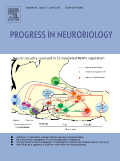
Behavioral and Brain Functions
Scope & Guideline
Advancing the Science of Mind and Behavior
Introduction
Aims and Scopes
- Neurobiological Mechanisms of Behavior:
The journal explores the neurobiological underpinnings of behavior, including how neurotransmitters, brain structures, and neural circuits influence psychological processes. - Impact of Pharmacological Interventions:
Research often examines the effects of various drugs on behavior and brain function, including studies on antidepressants, stimulants, and other pharmacological agents. - Developmental and Neurodevelopmental Disorders:
A significant focus is placed on understanding disorders such as autism, ADHD, and schizophrenia, with studies investigating their neuroanatomical and functional correlates. - Cognitive Processes and Learning:
Research in this area investigates cognitive functions such as memory, attention, and learning, often utilizing advanced neuroimaging techniques to assess brain activity. - Behavioral Genetics:
The journal includes studies that examine the genetic and epigenetic factors influencing behavior and brain structure, highlighting the biological basis of psychological traits. - Intervention Strategies and Therapeutics:
It also covers innovative therapeutic interventions aimed at ameliorating behavioral deficits or enhancing cognitive function, including behavioral therapies and neurostimulation techniques.
Trending and Emerging
- Neuroinflammation and Behavioral Impact:
Research examining the role of neuroinflammation in behavioral changes is gaining traction, indicating a heightened awareness of how immune responses in the brain can affect mental health. - Transcranial Stimulation Techniques:
There is a rising trend in studies utilizing non-invasive brain stimulation methods (e.g., tDCS, TMS) to explore their effects on cognition and behavior, showcasing innovative therapeutic approaches. - Interdisciplinary Approaches Combining Technology and Neuroscience:
The integration of advanced technologies, such as machine learning and neuroimaging, to analyze behavioral and neural data is increasingly prominent, indicating a move towards more sophisticated research methodologies. - Sex Differences in Neuroscience Research:
An emerging theme focuses on how sex and gender influence brain function and behavior, reflecting a broader recognition of the importance of these factors in psychological research. - Genetic and Epigenetic Influences on Behavior:
There is a notable increase in studies investigating the genetic and epigenetic mechanisms that underlie behavioral traits, highlighting a trend towards understanding the biological basis of behavior.
Declining or Waning
- Traditional Neuropsychological Assessments:
There seems to be a waning focus on conventional neuropsychological assessments, with fewer studies emphasizing standardized tests in favor of more dynamic and neurobiologically anchored approaches. - Animal Models of Purely Behavioral Studies:
Research that solely focuses on behavioral outcomes without linking them to neurobiological mechanisms appears to be decreasing, as the journal emphasizes integrative studies that connect behavior and brain function. - Epidemiological Studies without Mechanistic Insights:
There is a noticeable decline in studies that report epidemiological findings without exploring underlying mechanisms, as the journal leans towards research that elucidates causal relationships.
Similar Journals

EXPERIMENTAL BRAIN RESEARCH
Pioneering Research for a Deeper Insight into NeurologyEXPERIMENTAL BRAIN RESEARCH is a renowned journal published by SPRINGER, dedicated to advancing understanding in the field of neuroscience. With a history dating back to 1966, this journal offers valuable insights into the mechanisms of brain function and neurological disorders, making it a vital resource for researchers, professionals, and students alike. While it currently holds a Q3 classification in the field of Neuroscience (miscellaneous) and ranks #73 out of 113 in Scopus's General Neuroscience category, it continually contributes to fostering innovative research and collaborative dialogue. The journal is not open access, ensuring that although content is subscription-based, it maintains a high standard of peer review and scholarly rigor. By covering a breadth of topics relevant to both experimental and theoretical aspects of brain research, EXPERIMENTAL BRAIN RESEARCH serves as an essential platform for disseminating cutting-edge discoveries and theories in the dynamic realm of neuroscience.

GENES BRAIN AND BEHAVIOR
Illuminating the Genetic Basis of Brain Function and BehaviorGENES BRAIN AND BEHAVIOR is a leading journal published by Wiley that focuses on the intricate interplay between genetic factors and behavioral neuroscience. With a robust ISSN of 1601-1848 and an E-ISSN of 1601-183X, this journal serves as a premier platform for innovative research that spans across multiple fields including genetics, neurology, and behavioral neuroscience. Recognized for its significant impact with a 2023 categorization of Q1 in Behavioral Neuroscience and Q2 in both Genetics and Neurology, GENES BRAIN AND BEHAVIOR asserts itself as an influential resource for scholars, practitioners, and students alike, facilitating the advancement of knowledge in these dynamic areas. Its Scopus rankings underscore its prominence—ranking #18 in Behavioral Neuroscience and #45 in Neurology, placing it in the top percentiles among its peers. Although not an open-access journal, the rigorous peer-review process ensures high-quality publications, pivotal for those pursuing cutting-edge research and applications. With a history of convergence from 2002 to 2024, this journal continues to foster academic dialogue and discovery in the ever-evolving landscape of brain and behavioral studies.

NEUROBIOLOGY OF LEARNING AND MEMORY
Advancing Understanding in Learning and Memory MechanismsNeurobiology of Learning and Memory is a prestigious journal dedicated to the exploration of the neural mechanisms underlying learning and memory processes. Published by Academic Press Inc Elsevier Science, this journal boasts a strong reputation within the field, as evidenced by its impressive impact factor and high quartile rankings in multiple categories, including Q1 in Behavioral Neuroscience and Q2 in Cognitive Neuroscience. Having provided a platform for groundbreaking research since its inception in 1995, the journal aims to disseminate influential findings that further our understanding of cognitive processes, shaped by robust empirical studies and theoretical developments. Researchers and professionals in neuroscience, psychology, and related disciplines will find invaluable insights and advancements that underscore the journal's commitment to fostering knowledge and innovation within these fields. While it currently operates under a subscription model, its comprehensive coverage of crucial topics positions it as a vital resource for those engaged in the intricate study of learning and memory.

BEHAVIOURAL BRAIN RESEARCH
Exploring the Nexus of Behavior and NeuroscienceBEHAVIOURAL BRAIN RESEARCH, published by Elsevier, is a leading scholarly journal that has been at the forefront of research in Behavioral Neuroscience since its inception in 1980. With an ISSN of 0166-4328 and an e-ISSN of 1872-7549, this journal caters to a global audience of researchers and professionals keen on exploring the intricate relationships between behavior and neural processes. As of 2023, it holds an impressive Q2 ranking within its category, showcasing its significant impact with a Scopus rank of #28 out of 88 in the field, placing it in the 68th percentile. While the journal does not offer open access, it remains accessible through institutional subscriptions, ensuring that its high-quality research is disseminated effectively. The journal's commitment to advancing knowledge in behavioral neuroscience makes it an indispensable resource for those looking to delve deep into the complexities of brain-behavior interactions and foster innovative approaches in both research and clinical applications.

Brain Communications
Empowering Research for a Healthier MindBrain Communications is an esteemed, open-access academic journal published by Oxford University Press since 2019, focusing on the dynamic field of neuroscience. With a dedicated ISSN and an E-ISSN of 2632-1297, this journal aims to address the intricate relationships between brain functions, psychiatric disorders, and neurobiological mechanisms. The journal stands out in the academic realm, holding a prestigious Q1 ranking across several categories, including Biological Psychiatry, Cellular and Molecular Neuroscience, Neurology, and Psychiatry and Mental Health for 2023. Notably, it has also secured impressive Scopus ranks in various neuroscience and psychiatry fields, evidencing its commitment to high-quality research. With an impact factor reflective of its growing influence, Brain Communications provides accessible research findings to professionals, researchers, and students alike, fostering a deeper understanding of complex neurological phenomena. This innovative journal is pivotal for anyone involved in advancing knowledge in neuroscience and mental health.

Biological Psychiatry-Cognitive Neuroscience and Neuroimaging
Exploring the Intersection of Mind and BrainBiological Psychiatry-Cognitive Neuroscience and Neuroimaging is a leading interdisciplinary journal published by Elsevier, focusing on the convergence of biological psychiatry, cognitive neuroscience, and advanced neuroimaging techniques. With its prestigious Q1 rankings across essential categories such as Biological Psychiatry, Cognitive Neuroscience, and Neurology (clinical), this journal is at the forefront of research that examines the complexities of mental health through innovative methodologies. Covering a broad spectrum of topics from neurobiological mechanisms to clinical applications, it aims to provide a platform for scholars and practitioners to exchange insights on mental disorders and their neurobiological underpinnings. The impact factor and Scopus rankings further underscore its importance, with rankings highlighting its position in the top percentiles of related disciplines. By fostering an open exchange of ideas and promoting cutting-edge research, this journal is an essential resource for researchers, professionals, and students dedicated to advancements in the understanding and treatment of psychiatric and neurological conditions.

PROGRESS IN NEUROBIOLOGY
Exploring the Depths of Brain FunctionPROGRESS IN NEUROBIOLOGY is a prestigious journal dedicated to advancing the field of neuroscience, published by Pergamon-Elsevier Science Ltd. With an impressive impact factor, it stands as a critical resource for researchers, professionals, and students alike, featuring rigorous peer-reviewed articles that explore the latest developments in neurobiology. The journal has established itself as a leading publication, ranked in the Q1 category for Neuroscience (miscellaneous) and holding a notable 13/113 rank in General Neuroscience per Scopus metrics, placing it in the top 12% of its field. Since its inception in 1959, PROGRESS IN NEUROBIOLOGY has covered a wide array of topics, from molecular mechanisms to cognitive processes, fostering a comprehensive understanding of brain functions. While the journal is not open access, it ensures accessibility to profound knowledge through institutional subscriptions. Researchers and scholars will find critical analyses and innovative research that are pivotal for both foundational knowledge and cutting-edge investigations in the neuroscience realm.

NEUROSCIENCE RESEARCH
Illuminating New Paths in Neuroscience ResearchNEUROSCIENCE RESEARCH, published by Elsevier Ireland Ltd, is a leading journal in the field of neuroscience, with a notable reputation for disseminating high-quality research that spans a variety of topics within the discipline. With an ISSN of 0168-0102 and an E-ISSN of 1872-8111, this journal serves as a vital platform for both established researchers and emerging voices in the field. Ranking in the Q2 quartile in both Medicine and Neuroscience categories, it has been recognized as a reliable source of innovative findings since its inception in 1984, with continuous publication through 2024. Although it does not currently offer Open Access options, the journal is indexed in Scopus, holding a significant position at Rank #48/113 in General Neuroscience, reflecting its contribution to advancing the understanding of neural mechanisms across various contexts. With its address anchored in Ireland, NEUROSCIENCE RESEARCH plays an essential role in bridging scientific inquiry and practical applications, making it an indispensable resource for researchers, professionals, and students dedicated to the burgeoning field of neuroscience.

TRENDS IN NEUROSCIENCES
Shaping the Future of Neuroscience DiscoveriesTRENDS IN NEUROSCIENCES, published by CELL PRESS, is a leading journal in the field of neuroscience, offering cutting-edge insights and important developments in the rapidly evolving landscape of brain research. With an impressive Impact Factor and ranking in the top quartile (Q1) of the category for Neuroscience (miscellaneous), it is positioned as a vital resource for researchers and professionals seeking to stay abreast of the latest discoveries and trends from 1978 to the present. Specifically ranked #3 out of 113 in General Neuroscience by Scopus, this journal promotes the interdisciplinary exchange of ideas and knowledge, making it an essential platform for students and experienced scholars alike. Although it is not an Open Access journal, its value lies in its rigorous peer-review process and commitment to maintaining the highest standards of academic integrity. By continuing to explore the complexities of neural processes and behavior, TRENDS IN NEUROSCIENCES plays a crucial role in shaping the future of neuroscience research and education.

BRAIN BEHAVIOR AND EVOLUTION
Unraveling the Biological Threads of BehaviorBRAIN BEHAVIOR AND EVOLUTION, with ISSN 0006-8977 and E-ISSN 1421-9743, is a prominent journal dedicated to the intricate connections between brain function, behavior, and evolutionary processes. Published by KARGER in Switzerland, this journal has established itself as a crucial resource in the fields of Behavioral Neuroscience and Developmental Neuroscience, evidenced by its respectable 2023 category quartiles of Q2 and Q3, respectively. With a rich publication history spanning from 1968 to 2024, BRAIN BEHAVIOR AND EVOLUTION presents original research articles, reviews, and theoretical contributions that investigate the biological underpinnings of behavior, making it an essential platform for researchers, professionals, and students committed to advancing our understanding of neurobiological and evolutionary mechanisms. Although it is not an open-access journal, its rigorous peer-review process ensures that only high-quality research is disseminated, maintaining the journal's impact in the academic community.